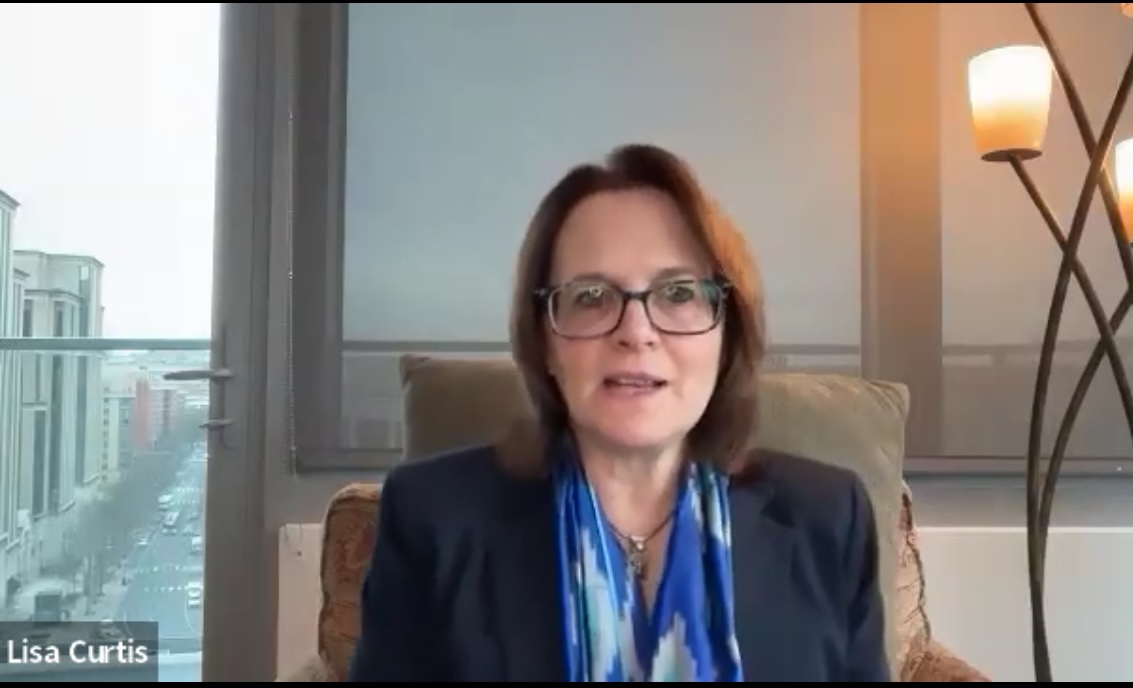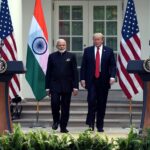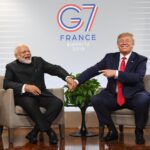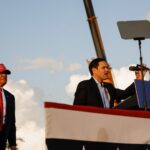Senior Fellow and Program Director of the Indo-Pacific Security Program at the Center for a New American Security (CNAS), Lisa Curtis, has stated that Indian Prime Minister Narendra Modi is well aware of U.S. President Donald Trump’s key concerns – deportations of illegal Indian migrants and India’s high tariffs – and has taken steps to address them in advance.
PM Modi is set to meet with President Trump on February 13th at the White House in Washington DC.
Underscoring that PM Modi will be the fourth foreign leader to visit President Trump since he took office on January 20th, Curtis expressed, “Clearly, the Trump administration is prioritizing relations with India. They recognize that India is an important emerging global power and really has the potential to transform the Indo Pacific region and the world.”
At a virtual press briefing on February 11th, Curtis, who previously served as Deputy Assistant to the President and NSC Senior Director for South and Central Asia (2017–2021), highlighted India’s recent decision to reduce import duties on high-end motorcycles, facilitating more exports of Harley-Davidson bikes to the country.
“This is something that’s very important to Trump, and Modi knows this, and it looks like India is set to reduce tariffs on other items as well before the meeting,” noted Curtis. “And I think another thing we can expect is that Modi would offer to purchase more American gas to narrow the US trade deficit, this will help a little bit, at least around the edges. The trade deficit, you know, is around 32 billion, which is pretty high.”
Curtis pointed out that the recent 25 per cent tariffs imposed by the Trump administration on steel and aluminum will significantly impact India, as nearly one-fifth of India’s exports to the U.S. involve these materials.
“So this will really hit the Indians,” she said. “While I don’t think Trump was specifically targeting India, it will color their trade talks. They will have to try to find a way to enter into fast-track trade negotiations. And I think these aluminum and steel tariffs only make that more important,” she added.
Despite trade tensions, Curtis emphasized that the Quad remains a crucial point of alignment between the two nations.
“I expect that will be some of the glue that brings the U.S. and India together despite this trade friction,” she noted underscoring both countries share an interest in maintaining a free and open Indo-Pacific, reducing dependencies on China, and diversifying supply chains.
Curtis emphasized that China would be a key theme throughout the upcoming U.S.-India discussions, even as the talks officially focus on trade, immigration, and defense.
“I think Trump’s advisors are very clear that India is an important partner when it comes to competing effectively with China and, you know, pushing back against Chinese aggression,” she said. “The US India relationship, when it comes to defense, is very important for India in terms of dealing with the threat from China along their disputed border.”
She also highlighted technology as a strong pillar of U.S.-India cooperation, with both nations motivated to collaborate on AI, quantum technologies, biotechnology, 6G, and semiconductors to compete with China.
Addressing India’s relationship with Russia, Curtis noted that while it may concern some in the Trump administration, it is unclear whether Trump himself would raise the issue with Modi.
“Trump administration is still figuring out how it is going to deal with the Russia-Ukraine issue,” she noted.
Additionally, she pointed out that discussions are ongoing regarding the deportation of about 500 more illegal migrants to India, with India signaling a willingness to accept thousands more as long as they have proper documentation proving Indian citizenship.
Despite these challenges, Curtis stressed that the personal rapport between Trump and Modi remains a strong factor in the relationship.
“I think rapport with President Trump is a very significant factor,” she pointed out. “I think Modi was able to establish that rapport during his first term. I think there’s a mutual respect between Trump and Modi. They see that they are powerful leaders of powerful countries, and they have similar leadership styles, so they really do get along quite well.”






